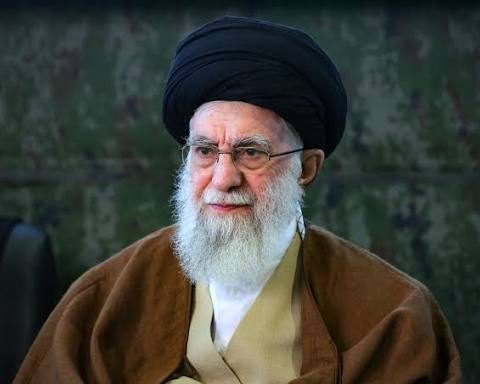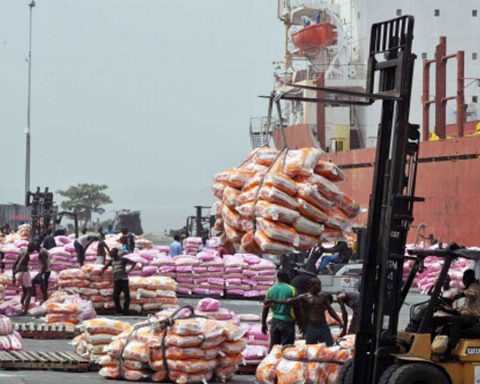Mixed reactions have trailed the decision of Nigerian government to implement “Nigeria First” Policy, aimed at encouraging patronage of made-in-Nigeria goods.
While some hailed the policy, others said Nigeria is not yet ripe for implementing it.
Join our WhatsApp ChannelPrime Business Africa reports that the Federal Executive Council (FEC), on Monday, approved the “Nigeria First” Policy, a policy framework which appears to mirror the United States President Donald Trump’s “America First” doctrine, aimed at encouraging local production and consumption.
According to the Minister of Information and National Orientation, Mohammed Idris, enforcement of the policy will take immediate effect. He said the Bureau of Public Procurement (BPE) will revise and enforce the procurement rules that prioritise Nigeria-made goods and homegrown solutions across all Ministries, Department and Agencies (MDAs).
While the Nigeria First Policy is seen as a big shift in Nigeria’s economic approach, others perceive it as a mere pronouncement not backed by meticulously designed plan for implementation.
Bongo Adi, a Professor of Economics at the Lagos Business School, and chairman of Newstide Publications Board, said Nigeria currently lacks the capacity to implement the policy.
Speaking when he featured on Arise News Television’s Morning Show on Wednesday, Professor Adi stressed that there is a need for rethink of the country’s development strategies.
He observed that countries that have transitioned from being underdeveloped to developed status in the last three decades such as China, India, etc., meticulously designed clear-cut policies and strategies deployed to executive their development plans.
READ ALSO: With N406bn Gain, Palm Oil Companies Are Among Most Sought-After Stocks
He said it is not about mere pronouncements of prioritising made-in-Nigeria products.
“The question is do we have the productive capacity to even meet what we need,” Professor Adi stated. “The answer is unequivocal, it is unambiguous, no, we don’t.”
He pointed out that in terms of statistics on the level of productivity, Nigeria is the least when compared to other African countries. “Our level of productivity is on the negative. Like minus one point five per cent. So, it is very low, meaning that we are negatively productive.”
He emphasised that one of the principles for measuring a country’s standard of living is the ability to produce goods and services, which is the level of productivity determining the standard of living.
The Economics scholar and consultant asserted that the living standard in Nigeria is abysmally poor and is because of low productivity.
“It is not just by mere policy statement. Like I said, there is need for a clear strategy and then meticulous execution. Citing an example of India’s system, the economic expert said the country implemented what he called “Minimum government, maximum governance,” but in the case of Nigeria what is in place is “Maximum politics, zero governance.”
Talking about infrastructure that enhances productivity, he observed that there has not been any significant effort to expand the rail and road transportation network and power supply in Nigeria over the past decade.
He said those countries that have advanced their economic status in the past 30 years understood the shift in global development architecture and devised a new strategy.
According to him, there are five pillars of infrastructure to invest in which include: investment in public infrastructure, social infrastructure, physical infrastructure, digital infrastructure and simplification of laws.
READ ALSO: How Nigerian Govt’s Proposed Solar Panels Import Ban Threatens Renewable Energy Projects
On social infrastructure, he said this involves investment in education, and competitiveness. He maintained that productivity has to be complemented by those supporting infrastructure which do not exist in Nigeria such as epileptic power supply, among others. “How do you talk about productivity when we have not managed to stabilize electricity,” he asked.
Speaking on the timing of the Nigeria First Policy with regard to impending fiscal crisis facing the country due to falling oil prices in the international market below the $75 per barrel benchmark in Nigeria’s 2025 budget, Professor Adi said this is a time the government needs to be fretting and seeking viable solutions, but it is just “business as usual, nobody is really thinking of beyond the moment.”
He warned that it is not about pronouncements but meticulous execution.
While noting that a policy that promotes made-in-Nigeria goods is good, he however, insisted that the country do not at the moment have the capacity to do what the president wants to achieve with the policy. “We need to invest in the right infrastructure,” he emphasised.
On the way forward, he suggested optimizing the natural resources the country has such as oil and gas (especially gas), investing in education and skill acquisition for competitiveness, and encouraging indigenous production.










